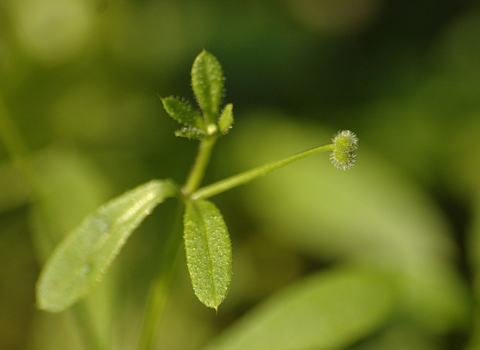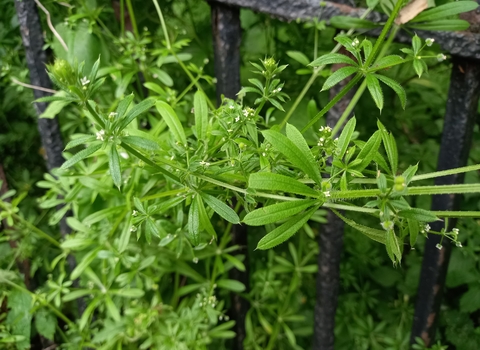Cleavers
Familiar as the bristly plant that easily hooks on to our clothing as we walk through the countryside or do the gardening, cleavers uses its hooks to help it climb and to disperse its seeds.

©Anne Tanne

Goosegrass by Eden Jackson

©Anne Tanne

Goosegrass by Eden Jackson

©Anne Tanne